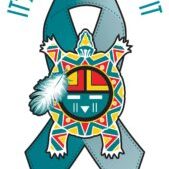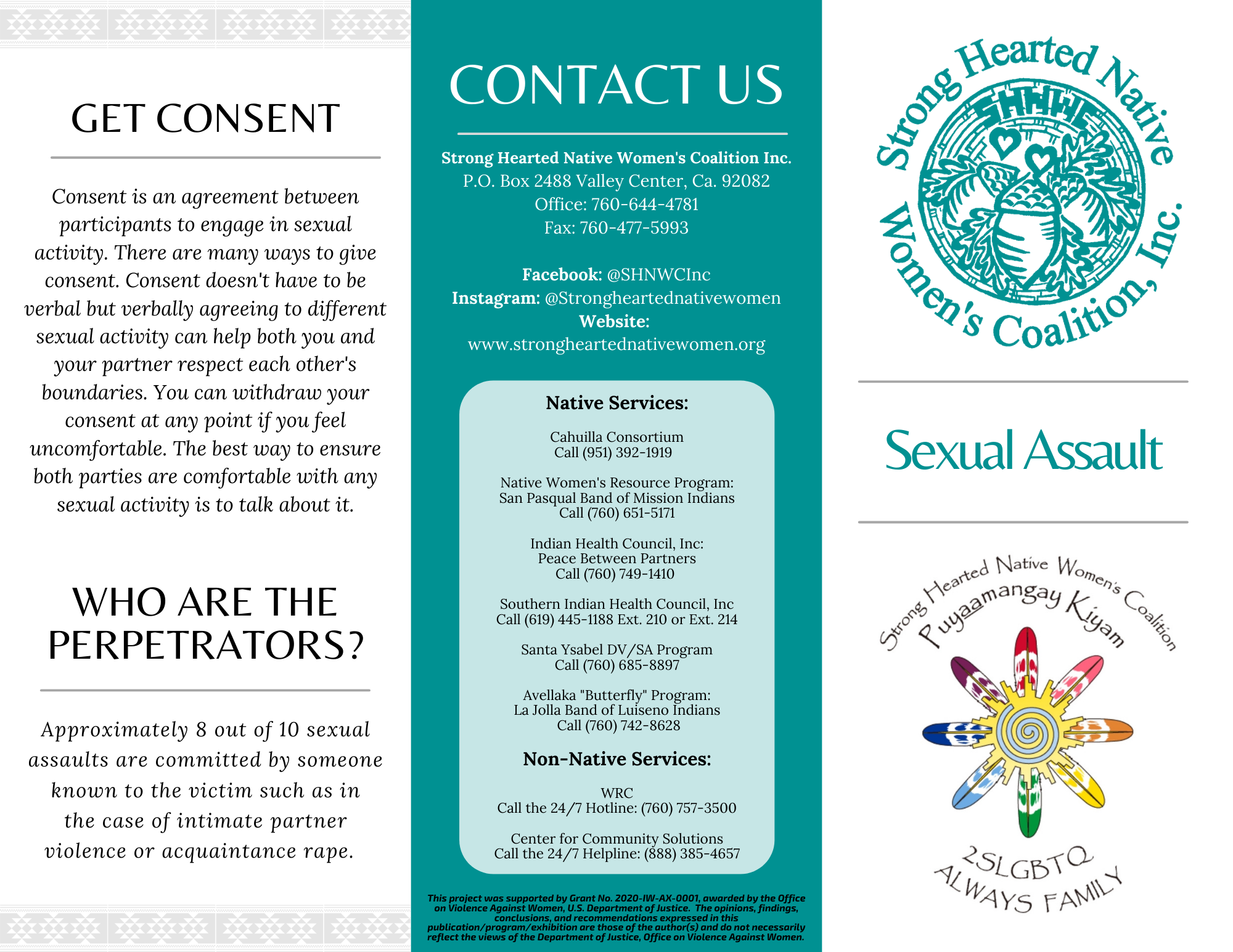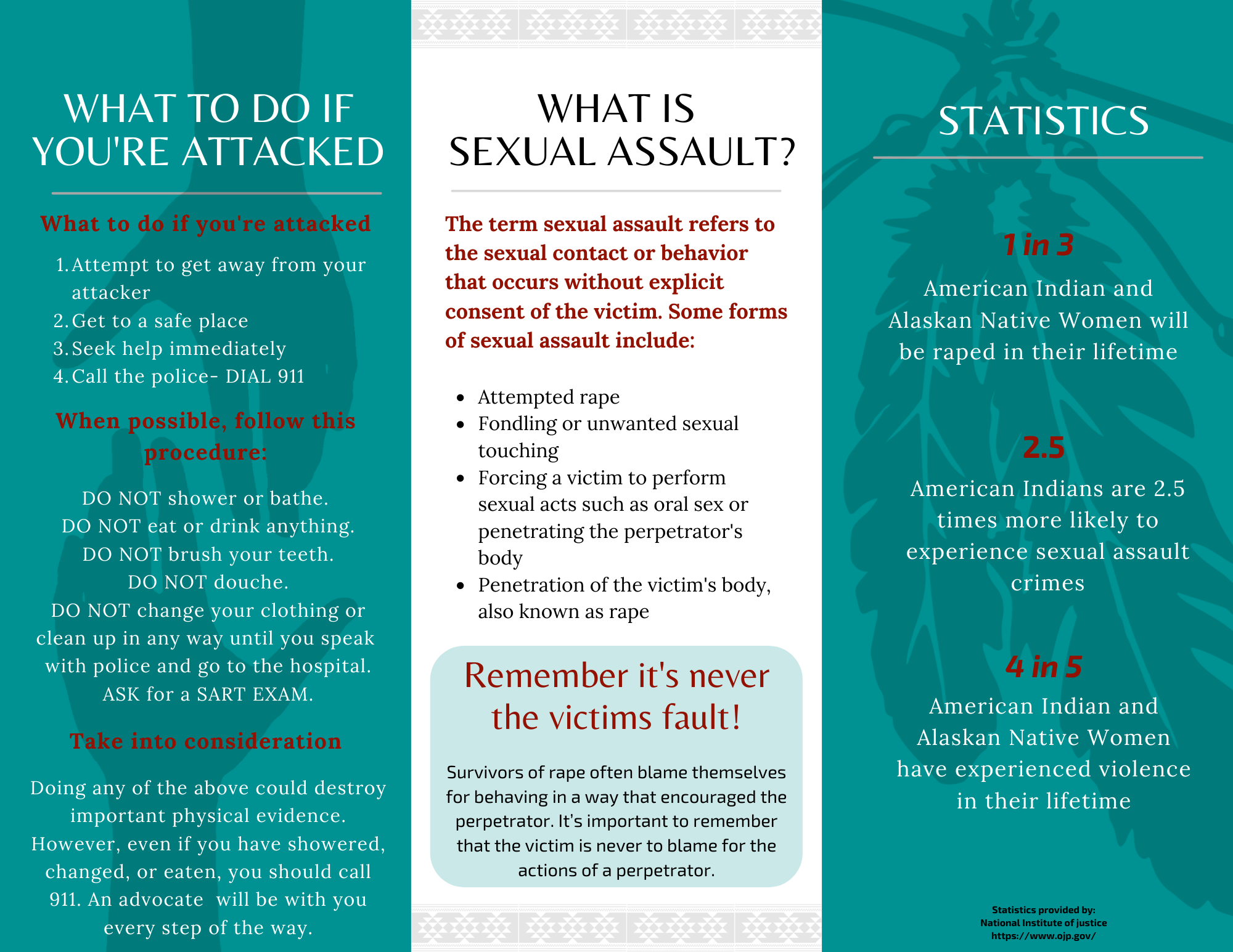Sexual assault is about danger, power, and control. It can happen to anyone of any gender and age. It is any sexual act involving a child under 18 who are not legally able to consent to a sexual act. We must also aknowledge that there is no typical victim or attacker which means that victims and attackers can be of all ages and backgrounds. Although, victims are often young women. Support sexual assault awareness be wearing teal.
What is sexual assault?
things to remember
The term sexual assault refers to the sexual contact or behavior that occurs without explicit consent of thee victim. Some forms of sexual assault include:
- Attempted rape
- Fondling or unwanted sexual touching
- Forcing a victim to perform sexual acts such as oral sex or penetrating the perpetrator's body
- Penetration of the victim's body, also known as rape
It is never the victims fault!
Survivors of rape often blame themselves for behaving in a way that encouraged the perpetrator. It’s important to remember that the victim is never to blame for the actions of a perpetrator.
Consent is...
An agreement between sexual participants to engage in sexual activity.
what to do if you are sexually assaulted
Do not clean up
It is important to preserve the evidence of the attack. Do not shower, bathe, brush your teeth, comb your hair, put on make-up, eat, drink, or change your clothes until advised to do so. As soon as you can, write down, tape, or record by any means all details you can recall about the assault and your assailant.
Seek medical attention
Go to your nearest hospital emergency room as soon as possible. You need to be examined, treated for any injuries, and screened for possible sexually transmitted diseases or pregnancy. The doctor will collect evidence using a rape kit for fibers, hairs, saliva, semen, or clothing that the attacker may have left behind. If you suspect you have been drugged, request that a urine sample be collected or a blood test administered.
Get emotional support
Feelings of shame, guilt, fear, and shock are normal. Call a friend or family member you trust to be with you. It is important to get counseling from a trusted professional as well. Ask the hospital staff to connect you with the local rape crisis center that can help you make choices about reporting the attack and provide help through counseling and support groups.
Address the long term effects
The impact of sexual assault doesn't end with the attack. Talk with a counselor who is trained to assist ou with the emotional and physical effects that may continue to affect your life and even the lives of your friends and family.
statistics

1 in 3 American Indian and Alaskan Native Women will be raped in their lifetime

American Indians are 2.5 times more likely to experience sexual assault crimes

More than 4 in 5 American Indian and Alaskas Native Women have experienced violence in their lifetime
resources
Rape, Abuse & Incest National Network
Call 1-800-656-4673
Advocates available to chat 24/7
National Center for Victims of Crime
Call 1-855-484-2846


